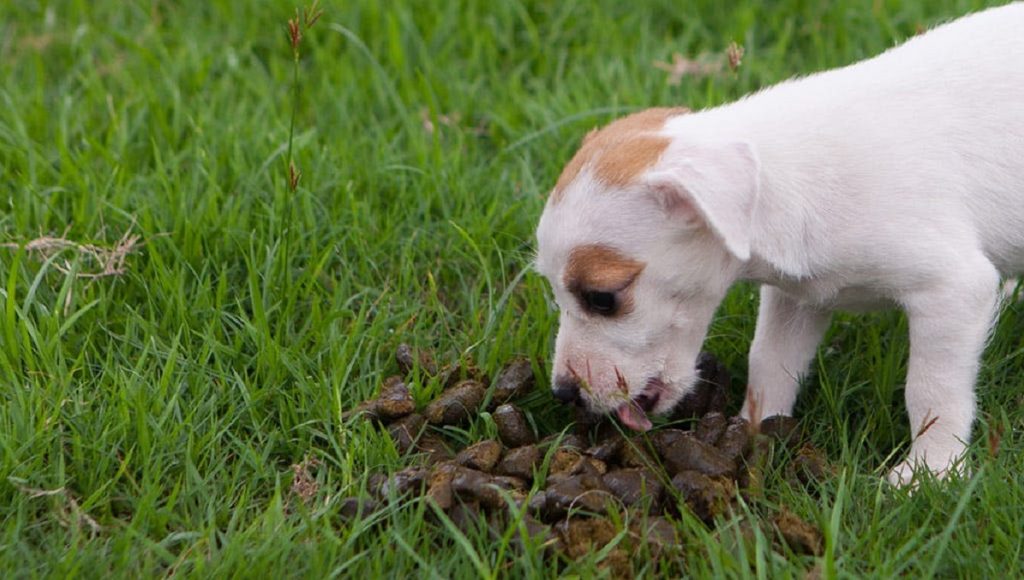Yes, dogs can get sick from eating poop due to potential parasites or bacteria. This behavior, known as coprophagia, poses health risks. Dogs often engage in coprophagia, a habit that frequently puzzles and disgusts pet owners.
While the occasional consumption of stool might not cause illness directly, it increases the risk of contracting intestinal parasites like roundworms or hookworms, as well as harmful bacteria such as E.
Coli or salmonella. These pathogens can lead to gastrointestinal issues and other health complications in dogs. Pet owners should discourage this behavior and ensure proper hygiene practices to minimize the risks associated with coprophagia.
Regular veterinary check-ups and preventive measures can help detect and address any issues that arise from a dog’s inclination to eat feces. Understanding why dogs exhibit this behavior can also be crucial to effectively prevent it, safeguarding both their health and the household’s sanitation.

Health Risks Of Dogs Eating Poop
Dogs sometimes eat poop, which is a habit known as coprophagia. This can lead to health problems. Owners must understand what these risks are. This ensures the safety and well-being of their canine companions.
Infections And Parasites
Dogs eating poop face several risks, particularly from infections and parasites.
- Various harmful organisms live in feces, including bacteria like Salmonella and E. coli.
- Parasites such as hookworms, roundworms, and giardia can spread through feces to your dog.
- Dogs may show symptoms such as vomiting, diarrhea, and weight loss.
Regular vet check-ups and treatments can keep these risks low.
Nutritional Deficiencies
Another concern is nutritional deficiencies. Eating feces can indicate a dietary problem. It can also cause one.
- When dogs eat poop, they may miss out on essential nutrients.
- This behavior could be a sign they are not getting certain vitamins or minerals from their regular food.
- Imbalanced nutrition can lead to health issues over time.
Proper diet adjustments and monitoring food intake are keys to preventing these deficiencies.
Preventing Dogs From Eating Poop
Many dog owners wonder if their furry friends can get sick from eating poop. Preventing this behavior is essential for their health. There are steps to stop dogs from indulging in this unpleasant habit.
Controlling The Dog’s Environment
Creating a clean space for your dog is vital. Here’s a plan:
- Regularly clean the yard of feces.
- Secure trash bins. Dogs might find feces or other temptations there.
- During walks, keep your dog on a leash to steer clear of poop.
- For those with cats, clean the litter box frequently. Preventing access is key.
Behavioral Training
Training plays a crucial role in prevention. Simple commands can work wonders:
| Command | Use |
|---|---|
| “Leave it” | Teaches the dog to ignore feces. |
| “Come” | Redirects their attention away. |
Consistency in training ensures success. Reward them for obeying these commands.
What To Do If Your Dog Eats Poop
Dogs eating poop, while disturbing, is not uncommon. This behavior, known as coprophagia, can lead to health issues. Quick action can help minimize risks. Below are important steps to take.
Recognizing The Signs Of Illness
If your dog eats poop, they can get sick. Watch for signs like:
- Vomiting: They may throw up.
- Diarrhea: Their stool may be loose.
- Lethargy: They may seem tired.
- Loss of Appetite: They may eat less.
Notice behavior changes? Call your vet.
Some Symptoms of Dog Eating Poop
Dogs eating poop, a behavior known as coprophagia, can have various causes and symptoms.
Diarrhea: Eating feces may lead to digestive upset, resulting in diarrhea.
Foul Breath: If your dog has been eating feces, their breath may have a particularly unpleasant odor.
Vomiting: Dogs may vomit after consuming feces, especially if the poop they ate was from an animal with a different diet.
Behavioral Changes: Coprophagia may be linked to underlying behavioral issues or anxiety. If your dog is stressed or anxious, they may be more likely to engage in this behavior.
Increased Appetite: Some dogs eat feces due to nutritional deficiencies or malabsorption issues. They may seem hungrier than usual.
Stomach Upset: You might notice your dog’s stomach making unusual noises or gurgling sounds after they’ve eaten feces.
Repetitive Behavior: Dogs that engage in coprophagia may do so regularly and appear fixated on the behavior.
Irritated Anal Area: If your dog is consuming their own feces, it could lead to an irritated or sore anal area.
Weight Loss: If coprophagia is causing nutritional deficiencies, it could lead to weight loss over time.
Conclusion
Yes, a dog eating poop can make them sick. It’s important to be aware of the things that can make your dog sick. One potential hazard is eating poop.
While it may not seem like a big deal, ingesting feces can lead to serious health problems for dogs. Poop contains all sorts of bacteria and parasites that can be harmful to your pup.
Eating poop can cause vomiting, diarrhea, and even weight loss in dogs. It can also lead to more serious illnesses like parvo or hepatitis.